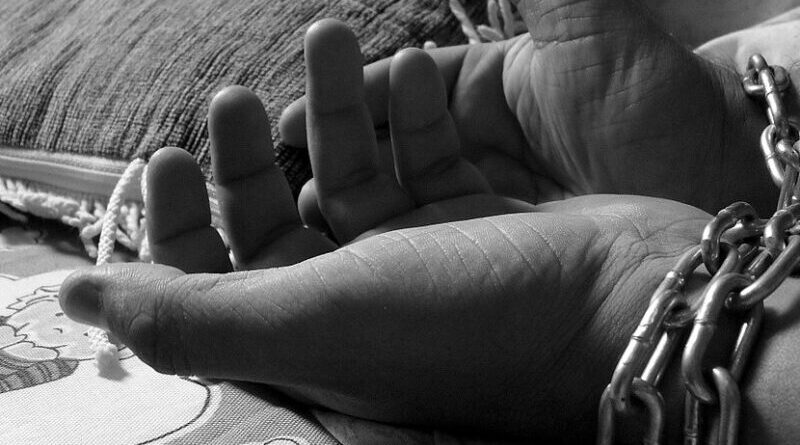Establishing An Effective Response Against Human Trafficking – OpEd
There is no doubt that human trafficking is a global problem with the increasing mobilizations of persons in this new era of globalization. Human trafficking problem is becoming more complex as a result of strong social media influences.
Human trafficking violates human rights and threatens international peace and security. Based on the most recent report of the United Nations Office on Drugs and Crimes (UNODC), human trafficking is a modern form of slavery that occurs all over the world.
According to the UNODC, the most common form of human trafficking is sexual exploitation representing 79% whose victims are predominantly women and girls but a number of male victims is also increasing. Around 30% of the 155 countries which provided data on the gender of traffickers, women constitute the biggest proportion of traffickers. In fact, women trafficking is the usual norm of trafficking in some parts of the world.
Forced labor is the second most common form of human trafficking representing 18% of the global figure. Admittedly, forced labor is less frequently detected and reported than trafficking for sexual exploitation.
It is an inconvenient truth that almost 20% of all trafficking victims worldwide are children. In some parts of Africa and the Mekong region, children are the majority of trafficking victims. In some parts of West Africa, up to 100% of trafficking victims are children.
With the implementation of the United Nations Protocol against Trafficking in Persons that entered into force in 2003, the world has demonstrated significant achievements in countering human trafficking after two decades. But there is no reason to be complacent as the problem of human trafficking worldwide persists.
We still need to increase the awareness of the global citizens about the need sustain our fight against this problem. We need to inform our people that there is a global action line against human trafficking and make this action line more accessible to the marginalized sectors of our society most victimized by this crime against humanity.
The Philippine government considers human trafficking as a national security and law enforcement concern being a threat to the human security not only of people directly victimized by the menace but also of their loved ones and neighbors. Around 100,000 Filipino children, mostly young girls, are being trafficked for prostitution and sexual slavery. Some Overseas Filipino Workers (OFWs) are also being victimized by human traffickers for forced labors. Thus, the Philippine government, through its concerned law enforcement authorities, takes a strong counter measure in order combat human trafficking not only in the country but also in the region and even the world at large.
In the 2023 Trafficking in Persons Report for the Philippines, the US State Department recognizes that the Philippine government fully meets the minimum standards for the elimination of human trafficking. According to this report, Philippine efforts included “investigating more trafficking crimes, convicting more traffickers, amending its anti-trafficking law, increasing funding to the Inter-Agency Council Against Trafficking (IACAT), and sentencing nearly all traffickers to significant prison terms.” The Philippines passed in 2003 the Anti-Trafficking in Persons Act and expanded this law in 2012 to make it more effective.
The 2023 Trafficking in Persons Report for the Philippines also exclaims the following:
- The National Bureau of Investigation (NBI) and the Philippines National Police (PNP) investigated 277 trafficking cases, compared with 168 investigations in 2021.
- The government prosecuted 139 alleged traffickers – 115 for sex trafficking and 24 for forced labor – compared with prosecuting 298 alleged traffickers in the previous reporting period.
- The government continued 2,705 prosecutions initiated in prior years.
- Courts convicted 86 traffickers – 83 for sex trafficking and three for forced labor – compared with 56 traffickers in the previous reporting period.
- Courts sentenced 80 traffickers convicted under the anti-trafficking act to significant prison terms, ranging from four years to life imprisonment, and fines ranging from 50,000 to 12 million pesos ($900 to $215,800)
While there are current achievements in the global fight against human trafficking, it is still imperative for all nations to strengthen national, regional and international counter measures to deal with this persistent problem. There is still an urgent need to boost international cooperation through greater law enforcement coordination, intelligence sharing, and capacity building to establish a more effective global and national response against human trafficking.
Based on the speech delivered at the World Police Summit 2024 held in Dubai, UAE on 5 March 2024.

